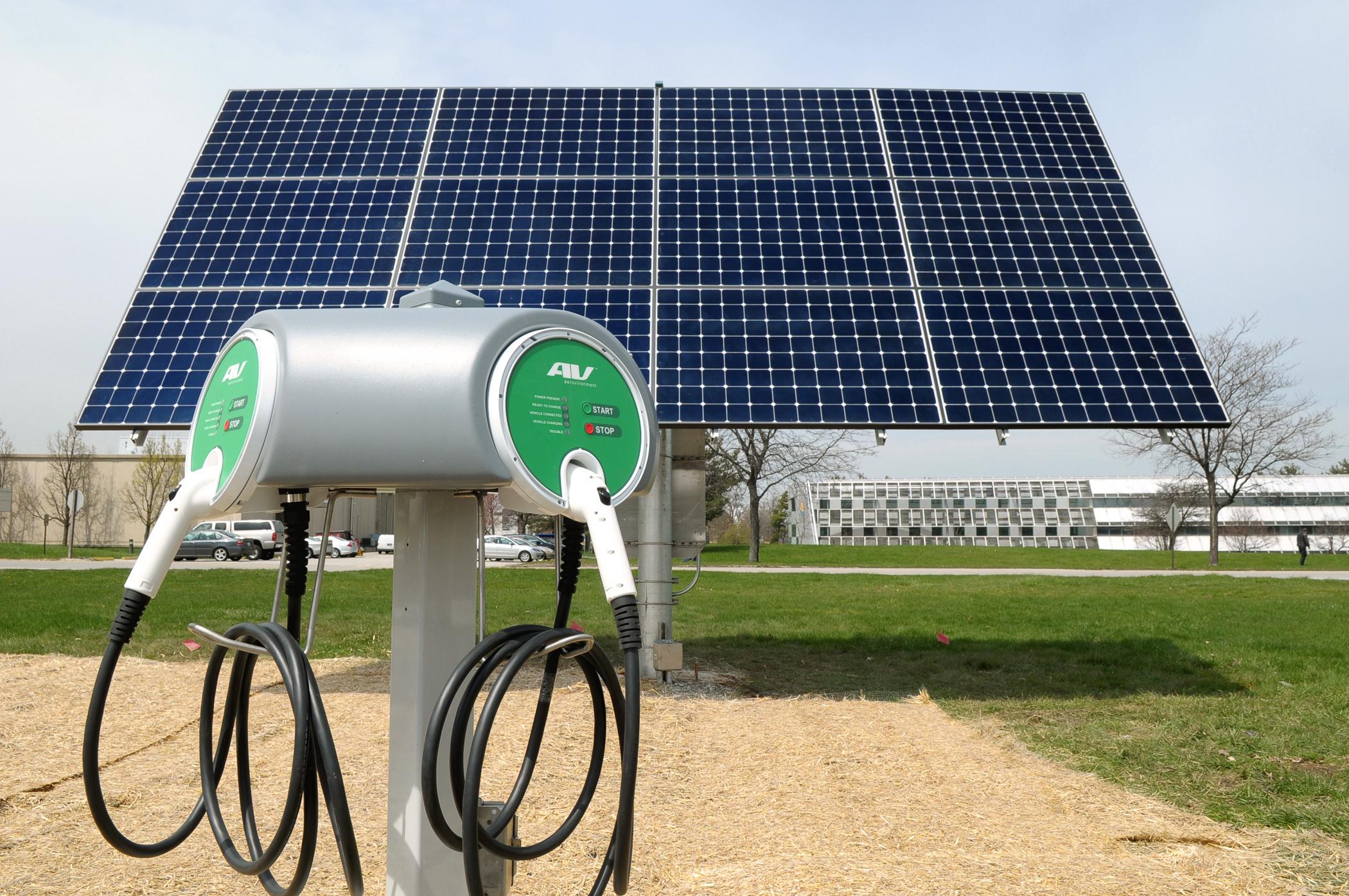Electric Vehicle Charging Station

An electric vehicle charging station is equipment that connects an electric vehicle (EV) to a source of electricity to recharge electric cars, neighborhood electric vehicles and plug-in hybrids. Some charging stations have advanced features such as Smart metering, cellular capability and network connectivity, while others are more basic.
Charging stations are also called electric vehicle supply equipment (EVSE) and are provided in municipal parking locations by electric utility companies or at retail shopping centers by private companies. These stations provide special connectors that conform to the variety of electric charging connector standards.
Fees for using EVSE vary from monthly or yearly flat rates to per-kWh to hourly rates. Charging stations can be free and are usually subsidized by the local government.
Different types of EVSE provide different speeds of charging. Level 1 charging stations use a 120 volt (V), alternating-current (AC) plug and require a dedicated circuit, offering about 5 miles of range for every hour of charging. Level 2 stations charge through a 240V, AC plug and require home charging or public charging equipment to be installed. Level 2 stations provide 10 to 20 miles of range for every hour of charging. Level 2 chargers are the most common and charge at approximately the same rate as a home system.
Level 3 chargers are also known as DC fast chargers. Level 3 uses a 480V, direct-current (DC) plug. They bypass the onboard charger and provide DC electricity to the battery via a special charging port. DC Fast Chargers provide up to 40 miles of range for every 10 minutes of charging but are not compatible with all vehicles. Additionally, some propriety charging stations, such as the Tesla Supercharger, are designed for significantly higher-speed charging.
As demand grows for more publicly accessible charging stations, there is a greater need for equipment that supports faster charging at higher voltages and currents that are not currently available from residential ESVE. Globally, the number of electric vehicle networks is increasing to provide a system of publicly accessible charging stations for EV recharging. Governments, automakers and charging infrastructure providers have forged agreements to create these networks.
